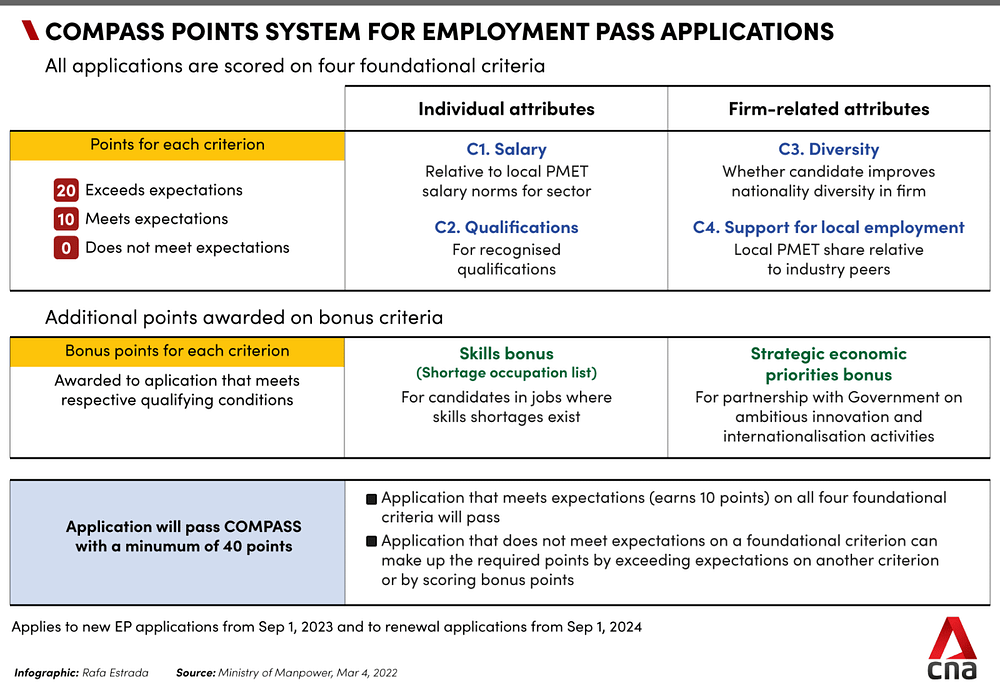As a policy analyst, examining and understanding Singapore's new points system for Employment Pass (EP) applications is essential. The system includes bonus points for applicants in shortage jobs, with the Ministry of Manpower (MOM) publishing a list of 27 jobs that are facing shortages. Among these jobs are AI scientists and carbon traders, which indicates a focus on high-tech and environmentally-friendly industries.
The inclusion of bonus points for candidates from top-tier institutions and those with degree-equivalent qualifications indicate a focus on attracting highly skilled and educated individuals to the country. The top-tier institutions include the top 100 universities based on QS World University Rankings and other highly reputable universities in Asia, Singapore's autonomous universities, and institutions highly recognized in a particular field. This could lead to increased competition for positions among applicants, as those from top-tier institutions are given an advantage in the application process.
The new points system aims to make it easier for EP applicants to obtain the required score of 40 points. The procedure considers factors such as the firm's size, the percentage of PMETs from one nationality, the firm's share of local PMETs within its subsector, and the candidate's salary compared to local PMET salaries in the sector by age. These criteria determine whether the applicant is eligible for an EP.
The new system may affect the number of foreigners holding jobs in Singapore. The 88.5% recorded last year could increase if the new system attracts more highly skilled and educated foreign workers. However, this could also lead to concerns about the displacement of local workers in specific industries.
In conclusion, the new points system for EP applications in Singapore aims to attract highly skilled and educated individuals. The system includes bonus points for candidates in shortage jobs, those from top-tier institutions, and those with degree-equivalent qualifications. While the procedure could increase the number of foreigners holding employment in Singapore, it could also lead to concerns about the displacement of local workers in specific industries. As a policy analyst, it is essential to continue monitoring the impact of the new system on the labour market and the overall economy of Singapore.
Backlinks:
